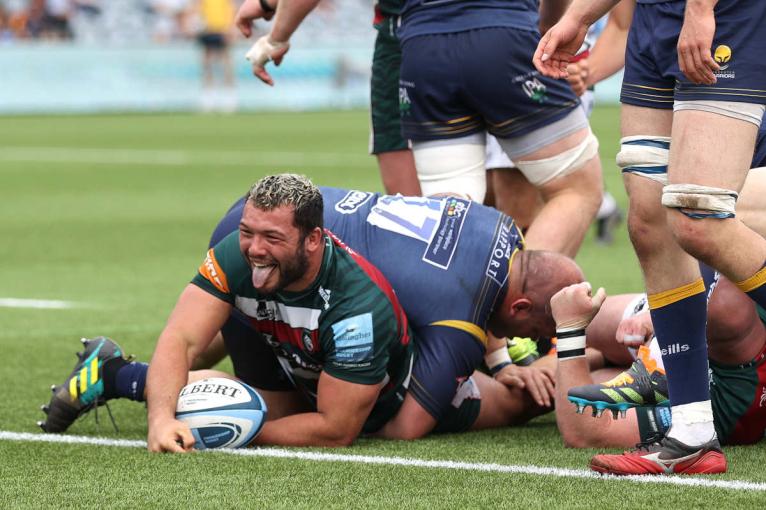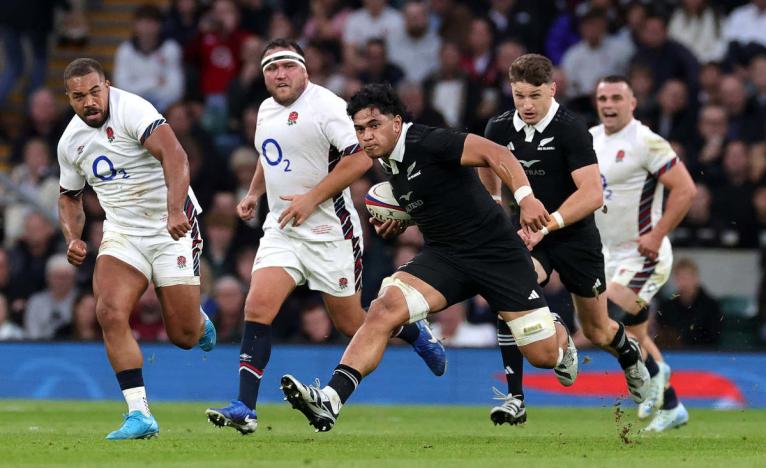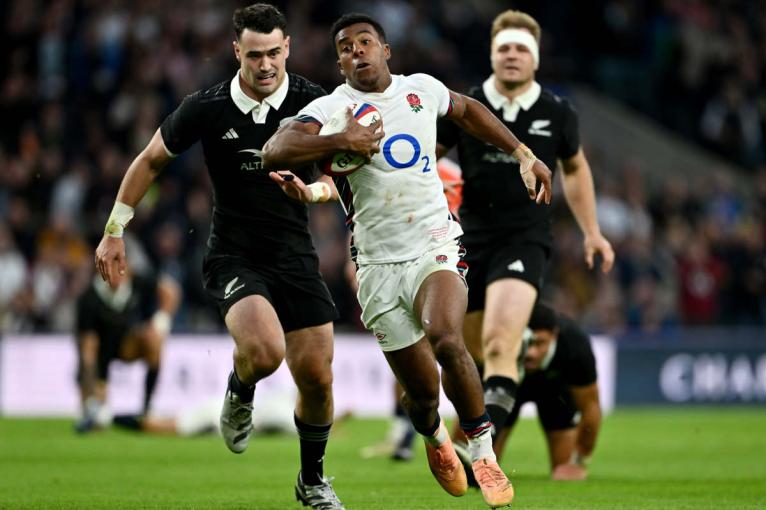In October 2021, 15 minutes into their Premiership game against Worcester Warriors at Sixways Stadium, Steve Borthwick’s Leicester Tigers had a line-out just inside their own half. The ball was swiftly thrown up and then hauled down before Jack van Poortvilet rifled it into the backline.
There, waiting like a hungry predator, was Ellis Genge. He collected on the charge off an angle and barged into two Worcester defenders, refusing to go down until he had stomped over the gainline. This was just one standout contribution from the prop cosplaying as a centre who routinely terrorised midfields across a title winning campaign.
On Saturday, in England’s agonising defeat to the New Zealand All Blacks, Genge carried just twice into contact. And though this is an admittedly cherry-picked stat, it does highlight a creeping conservatism that is stifling England’s prospects against the top teams.

Since the start of last year, in games that include two Six Nations campaigns, three against New Zealand, two against Argentina, one each against South Africa, Ireland and Wales, England have averaged 360 metres per game from around 100 carries. Compared to their 2015 numbers – 469 metres made per game from 115 carries – a clear decline is evident. Over this period there has also been a drop across other key metrics including line breaks, dominant carry rates and defenders beaten per game.
This is not in line with the numbers evidenced in the Premiership. In fact, in England’s top flight, more teams are attacking with greater success. So far this season we’ve seen more tries scored per game (3.7), more metres made per game (432), more defenders beaten per game (24.6), a higher frequency of dominant carries (34%), better gainline success (58%), better tackle evasion success (23%) and more moves down the openside (87%) than any year since 2015. Interestingly, carries per game are down compared to the numbers seen in 2018 and 2019 which means players are running with the ball less, but making more inroads.
The simple eye-test would support these figures. The Premiership, for all its troubles off the field, is a fantastic product. Just about every game is a try-fest with counter attacks from deep, cross-field kicks and dummy runners whizzing about like the chaotic murmurations of starlings. It’s hugely entertaining but also rewarding for attacking and innovative coaches.
Why then is Borthwick playing a different game? The simple answer is that Test rugby is practically a different sport. That beating Saracens is a very different task than beating South Africa. Pragmatism trumps panache, or so we’ve been led to believe. Scrums, mauls, a blitz defence, an effective kicking game and a sharp-shooter from the tee; that’s how World Cups and Six Nations are won.

But in order to build a game plan around a scrum, maul, a kick-chase and a solid defensive wall you need to have the players to effectively execute. And if the only league that supplies you with Test talent is geared towards an expansive approach, is it wise to attempt anything else?
English rugby has traditionally been built on a heavy-forwards strategy with cool-headed generals occupying the 9 and 10 jerseys. At half-time at Twickenham on Saturday, the gnarled veterans of their 2003 World Cup winning side took a lap of honour, reminding the public of those old virtues. Martin Johnson, Lawrence Dallaglio, Ben Kay, Phil Vickory, Trevor Woodman; how Borthwick would love to have these monsters on the prowl in his ranks.
But he doesn’t. And trying to ram square pegs into round holes is something that nursery school teachers would flag as a cause for concern. Bortwhick simply doesn’t have the tools for the job and recent history is proof of this.
There is a lack of grunt in the tight five, especially when the replacements make their way onto the park. There is a lack of punch in midfield where Ollie Lawrence, a capable runner though he may be, is just not a destructive battering ram. And without Freddie Steward, once Bortwhick’s darling, the kick-chase is severely diluted. As Ugo Monye alluded to on the BBC’s Rugby Union Weekly podcast, England are setting themselves up for an arm wrestle but are routinely losing it.
Does that mean all hope is lost? Of course not because England have a clutch of serious ballers who could, even without sustained front-foot ball, tear teams to shreds if given licence to do so. Marcus Smith is a generational talent and one of the most creative fly-halves to ever pull on an England jersey. Henry Slade is an all-court distributor from hand or boot. Immanuel Feyi-Waboso is a dazzler. Ollie Sleightholme is a try-machine. And in Ben Earl, they have an eighth-man who could comfortably play in the centre without raising eyebrows in the stands.

Let them loose for heaven’s sake! It’s not like this current ploy is paying dividends. Two wins over a truly awful Argentina at last year’s World Cup aside, the only scalp of note England have taken under Borthwick was the home victory over Ireland in March. And even that was a narrow one-point game that could have gone either way until the last minute.
Rugby union is perennially told it is losing relevancy and on life support in England. That three historic clubs going to the wall is a harbinger of things to come. But every weekend when a Premiership team is in action, hot-steppers and magicians light up gloomy stadia and set pulses racing. And when they go abroad or welcome foreign teams in the Champions Cup, they give them the business too, not through prosaic mauls but through intricate patterns and sparkling solo efforts.
England do not blow teams away, but they could. There’s no reason why they couldn’t if only their coach, a man who once stationed a prop in the backline from first phase strike play en route to a league title, would give them the chance to do so.
Sure, they might cop a few thrashings along the way. Sure, they might get bullied by the Boks or France or Ireland, but what’s the alternative? More of this? More drudgery and caution and the hope of an intercept and a string of three points in the form of penalties and dropped-goals? Is that really what English fans want?
Or would they welcome the chance, even half a chance, for a rebrand? This could be a new dawn, one where stunning highlights reels aren’t confined to domestic packages but are lit on centre stage and enacted by entertainers in all white strips. Boortwhick’s Buccaneers; it’s got a ring to it.


Comments
Join free and tell us what you really think!
Sign up for free